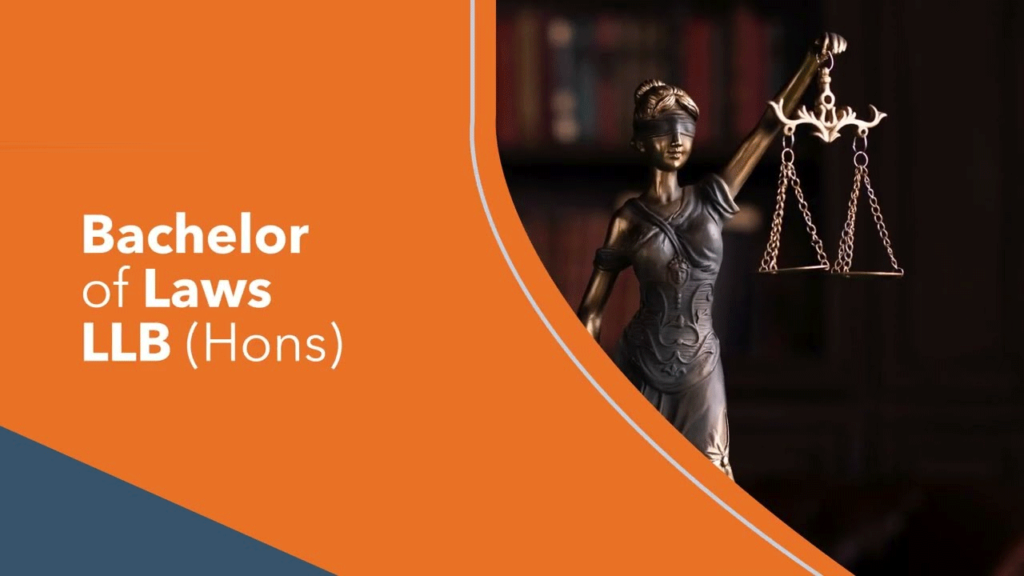
A Bachelor of Laws, or LLB, is an undergraduate academic degree in law. The LLB is usually a three–year program that provides students with the knowledge and skills necessary to practice law. The degree is designed to equip students with a thorough understanding of the legal field, including topics such as criminal law, civil law, international law, and constitutional law.
Bachelor of Laws (LLB) Eligibility Criteria
In order to be eligible to pursue a Bachelor of Laws (LLB) degree, you must have a Bachelor‘s degree in any field of study from a recognized university or college. You must also have a good academic record and pass a Law School Admission Test (LSAT). Depending on the country you are studying in, you may also need to pass an additional entrance exam.
Bachelor of Laws (LLB) Colleges In India
1. National Law University, Delhi
2. National Law School of India University, Bangalore
3. NALSAR University of Law, Hyderabad
4. The West Bengal National University of Juridical Sciences, Kolkata
5. Gujarat National Law University, Gandhinagar
6. Faculty of Law, University of Delhi, New Delhi
7. Damodaram Sanjivayya National Law University, Visakhapatnam
8. Rajiv Gandhi National Law University, Patiala
9. Symbiosis Law School, Pune
10. Amity Law School, Noida
Bachelor of Laws (LLB) List of Stream
1. International Law
2. Business Law
3. Tax Law
4. Environmental Law
5. Criminal Law
6. Family Law
7. Civil Litigation
8. Constitutional Law
9. Property Law
10. Labor Law
11. Immigration Law
12. Intellectual Property Law
13. Human Rights Law
14. Health Law
15. Entertainment Law
Bachelor of Laws (LLB) Syllabus
The Bachelor of Laws (LLB) is a four–year undergraduate degree program designed to equip students with the skills necessary to practice law. In most countries, a Bachelor of Laws is a prerequisite for admission to the bar and practice as a lawyer.
1st Year:
Introduction to Law: This course provides an overview of the legal system, including its history and development, the various sources of law, the structure of the legal system, and the various roles of the legal professional.
Civil Law: This course provides an introduction to the principles and rules governing private law and disputes between private parties, including contract law, tort law, and property law.
Criminal Law: This course provides an introduction to the principles and rules governing criminal behavior and punishments, including the elements of a crime, the various defenses and defenses to criminal charges, and the role of the criminal justice system.
2nd Year:
Legal Research and Writing: This course provides students with the skills required to identify, evaluate, and synthesize the law in order to craft persuasive legal arguments.
Legal Ethics: This course provides an introduction to the ethical principles and rules governing the legal profession, including the attorney–client relationship, the duty of confidentiality, and the duty of loyalty.
Constitutional Law: This course provides an introduction to the fundamental principles of constitutional law, including the separation of powers, judicial review, and individual rights.
3rd Year:
Advanced Civil Law: This course provides an in–depth exploration of the principles and rules governing private law, including contract law, tort law, and property law.
Advanced Criminal Law: This course provides an in–depth exploration of the principles and rules governing criminal behavior and punishments, including the elements of a crime, the various defenses and defenses to criminal charges, and the role of the criminal justice system.
International Law: This course provides an introduction to the principles and rules governing interactions between states and other international entities, including the law of treaties, the law of the sea, and the law of war.
4th Year:
Corporate Law: This course provides an introduction to the principles and rules governing the formation, operation, and dissolution of corporations.
Family Law: This course provides an introduction to the principles and rules governing family law, including marriage, divorce, child custody, and adoption.
Tax Law: This course provides an introduction to the principles and rules governing taxation, including the taxation of individuals and businesses.






